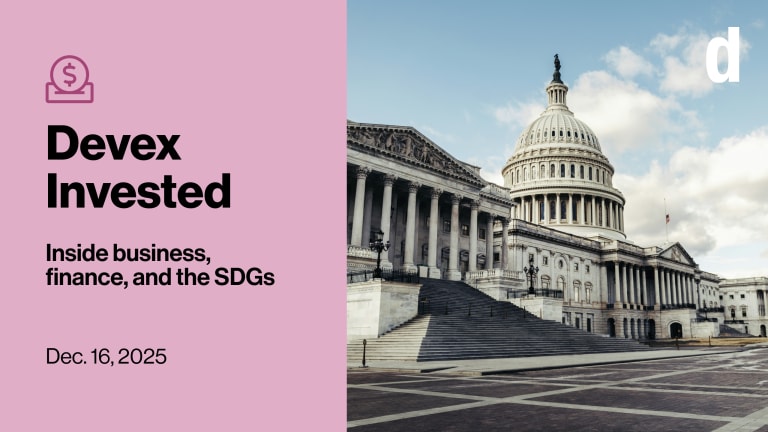Big changes are afoot for the 3-year-young U.S. development finance institution that has been expanding rapidly.
Last week Scott Nathan, CEO of the U.S. International Development Finance Corporation, or DFC, revealed to staff plans for a major reorganization of the agency’s staff structure and operations, Devex has learned. It could significantly change the jobs of staff who do DFC’s core work. Several employees tell Devex they are surprised, upset, and confused.
• DFC plans to reorganize its teams’ structure and focus on five key sectors: infrastructure and minerals, energy, health and agriculture, small business support, and funds, according to a strategy document Devex obtained. Currently, DFC staff work in units or departments based on investment expertise — the type of financial instrument they manage — or transaction size, which can range from $1 million to $1 billion.








